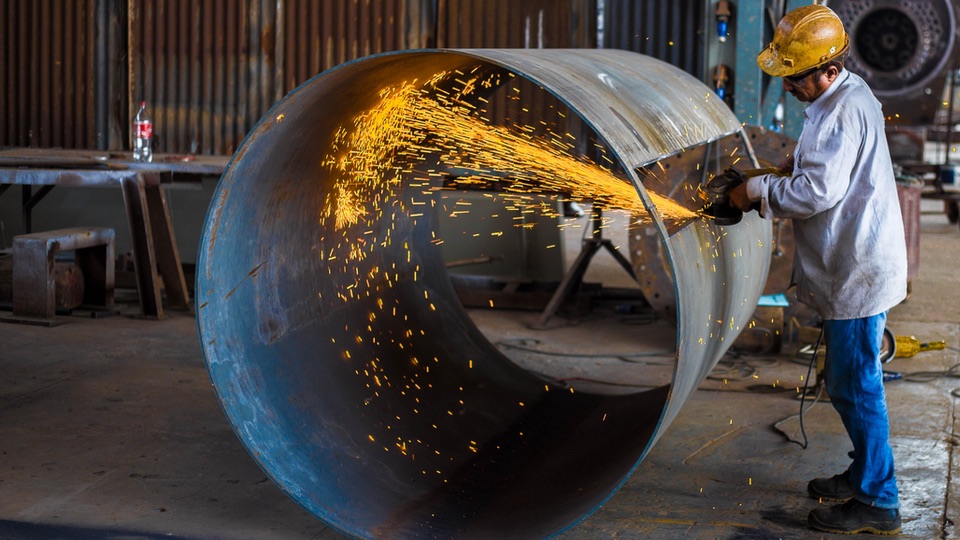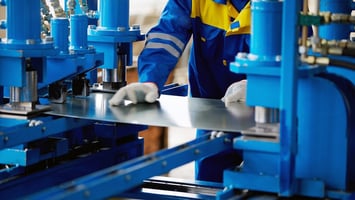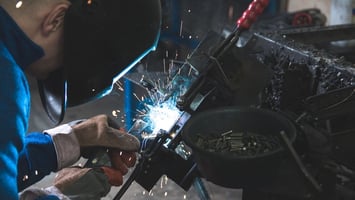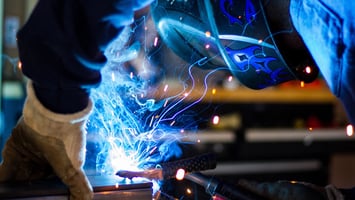The cost of metal fabrication is inexorably tied to its quality. Each project’s budget must...
Kryton Metals Blog
Metal Manufacturers Struggle to Find Skilled Tradespeople

A recent study conducted by The Manufacturing Institute and Deloitte revealed a concerning trend. According to their research, the metal fabrication industry could be facing a serious labor shortage in the coming years. With over 2.1 million more tradespeople needed by the year 2030, workforce development programs must ramp up to satisfy the increasing demand.
Meanwhile, profits lost through unfulfilled jobs could reach as high as $1 trillion based on some estimates. Vendors, suppliers, and engineers in this shrinking web may consequently find it harder to meet industry demands. It's essential to address the labor shortage issue promptly to ensure the continued growth and success of the metal fabrication industry. Failure to do so could have long-term implications for the economy and the future of manufacturing.
How the Metal Fabrication Labor Shortage Impacts Manufacturers
The metal fabrication labor shortage has significant impacts on manufacturers, leading to decreased productivity, reduced capacity, longer lead times, and increased costs due to the need for high wages and benefits to attract and retain skilled workers. Let’s talk more in-depth about how the metal fabrication labor shortage is affecting manufacturers.
Reduced Capacity
The metal fabrication labor shortage can cause a reduction in the capacity of manufacturers. With fewer skilled workers available, there may not be enough personnel to keep up with the workload, leading to slower production times and decreased output. This can lead to missed delivery deadlines, loss of business, and decreased revenue.
Increased Costs
The shortage of skilled labor in metal fabrication can also lead to increased labor costs. As the demand for skilled workers rises, so does the cost of hiring and retaining them. Manufacturers may have to pay higher wages and offer better benefits to attract and retain skilled workers, which can increase their production costs.
Quality Concerns
Inexperienced workers may not have the same level of expertise and knowledge as more experienced workers, leading to concerns about quality control in metal fabrication. Quality issues can arise from a lack of attention to detail, poor training, or lack of experience, leading to scrap and rework costs.
Innovation and Growth
The metal fabrication labor shortage can also impact a manufacturer's ability to innovate and grow. With fewer skilled workers available, manufacturers may be hesitant to invest in new equipment or processes that require specialized expertise. This can lead to a lack of innovation and a stagnant business model, limiting the manufacturer's ability to grow and expand their market share.
Finding a Metal Fabricator That’s Not Struggling to Meet Demands
The pockets are shrinking, but a few metal fabrication shops are still holding on to their reputations for consistent precision. Some facilities can do more than just fulfill timely orders. They maintain a high-performance staff of experienced CNC machining experts, for a start.
So, what should manufacturers look for in a metal fabricator’s workforce to avoid this temporary trend? How can partners band together to maintain and enhance our capabilities? Here are three tips:
#1. Use Automation Whenever Possible
Automating various sheet metal fabrication processes helps expedite projects without sacrificing quality. It also requires less manpower and is easier for inexperienced workers to learn. Take rapid prototyping (RP), for example. It can use 3D printing to create full-sized working models within hours.
#2. Hire Qualified Tradespeople
Fresh faces are always a good sight at a thriving business, but veterans understand vendor/client needs more intuitively. They can anticipate problems, spot processing issues, and help cut costs while conserving consistency. Most can also learn new automated technologies quickly.
#3. Obtain ISO Certification
ISO certifications play a crucial role in quality assurance, regardless of a fabrication shop’s size or schedule. These regulations are used to standardize measurements across borders. Plus, it doesn’t matter how ready the facility is. If it can’t meet certain specifications, it can’t serve certain industries.
All three of those factors determine the outcome of a metal fabrication project. So, talk to an expert for more information. And don’t forget to ask about how the shop is handling the lack of skilled tradespeople within the manufacturing industry.
DID YOU KNOW: A good company will most likely offer a variety of metal machining services for several different industries.
Considering Capacity Rates at Fully Staffed Fab Shops
Metal fabrication companies that can handle this bottleneck are getting overwhelmed with orders. So, it’s important for manufacturers to plan for a pinch. The best move is to budget for labor shortages and supply chain depletion ahead of time.
Do that by getting in touch with a well-established fab shop that has been around for years. KRYTON Engineered Metals was recently recognized as an Employer of Choice and earlier in the year was awarded the CFU Energy Conservation Award. Our proven process sets the standard in the metal fabrication arena, and we intend to continue that upward mobility with your help.
Reach out to get more information on how we’re managing these tumultuous industry changes. Submit your order ahead of the competition and before bigger waves strike. The manufacturing industry is booming and will continue to do so. But not all fab shops will survive the transition to automation.
NOTE: Discover more about our exciting career opportunities and learn what makes us one of the nation’s most trusted metal fabrication facilities.



